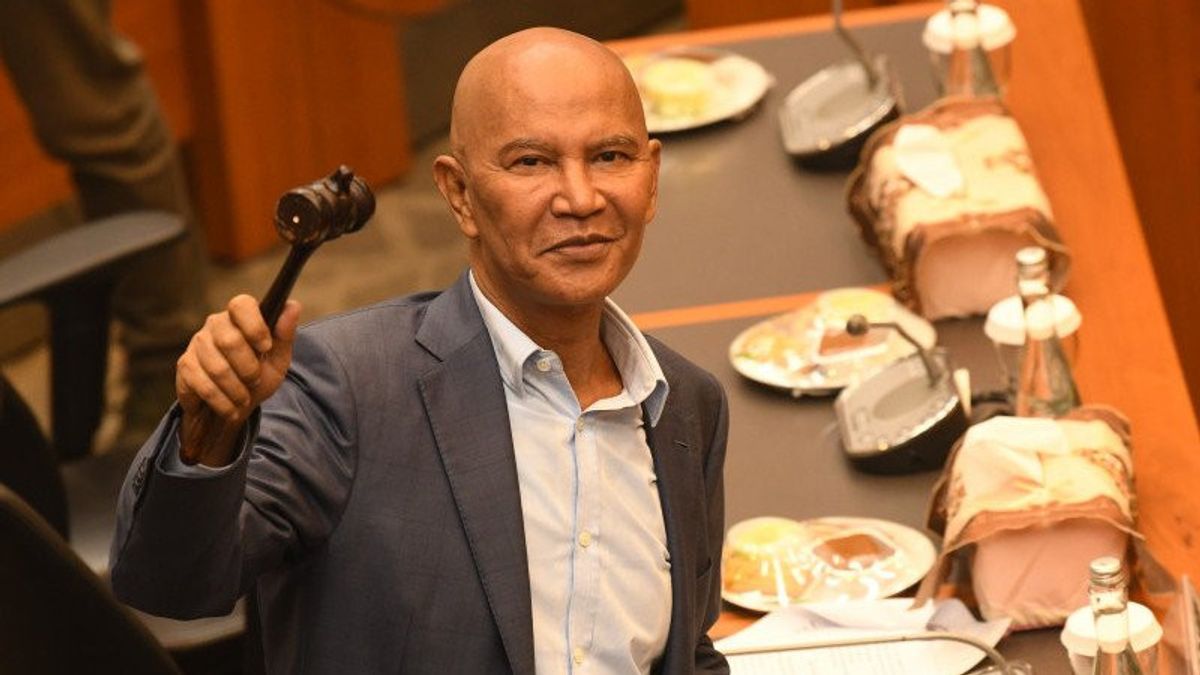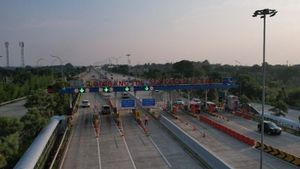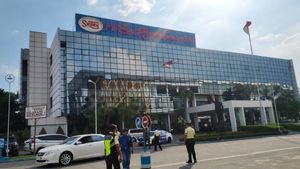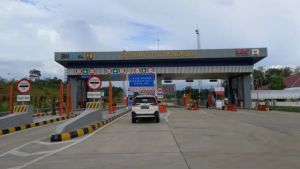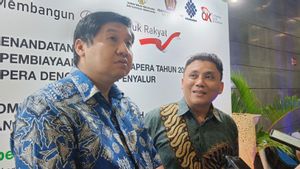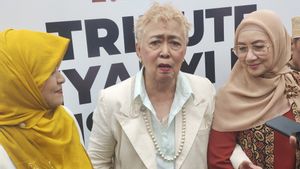JAKARTA - Recently, there has been a lot on social media about the issue that the government and the DPR's Budget Agency will remove 450 VA electricity customers.
Chairman of the House of Representatives Banggar Said Abdullah also received criticism and personal attacks regarding this matter.
Said assessed that there were efforts to turn the issue around. Even the omission of the issue has come out of the proportionality aspect
Said explained, during a meeting between the DPR's Budget Agency and the Fiscal Policy Agency of the Ministry of Finance, they actually discussed the big agenda of energy transition to improve the state budget (APBN).
Furthermore, Said said, in a very strategic policy, Indonesia needs to shift energy from oil-based to electricity.
This is because, this is to reduce the huge dependence on imports on petroleum. Meanwhile, Indonesia's petroleum production capability is only 614 to 650,000 barrels per day, while its needs reach 1.4 to 1.5 million barrels per day.
Said said this dependence on petroleum imports has resulted in Indonesia being stuck in the difficult position that is often faced repeatedly, such as the increase in oil prices and the exchange rate being cornered by Indonesia in difficult positions.
The state budget must accommodate an increasingly large subsidy. However, if the cost is reduced, it will result in an increase in the price of fuel oil (BBM), and burden the people.
Therefore, continued Said, Indonesia must get out of the oil trap. On the other hand, according to Said, Indonesia has a very large domestic electricity production, which is able to support our energy needs. He said, this is the reason why Indonesia immediately switched energy from petroleum to electricity.
"Unfortunately what is fried on social media is only a snippet of my sentence regarding the abolition of 450 VA's electrical power for poor households. This beheading releases a big narrative and context so that it creates heretical opinions in the middle of the people. The system is the study of this, plus a personal attack on me shows that there are parties who organize it, and we are not happy that we are independent of energy," he said in an official statement, Sunday, September 18.
Said emphasized that as many as 9.55 million households (RT) were 450 VA in the Integrated Social Welfare Data (DTKS).
This household group is categorized as severe poverty, which BPS includes families earning less than US$1.9 per day with the Purchasing Power Parity (PPP) exchange rate.
"For household groups like this, of course, it is impossible for us to increase the power to 900 VA. For eating alone, it is difficult and the electricity demand is average only for lighting with low voltage," he said.
Meanwhile, as many as 14.75 million households use 450 VA of electricity but are not recorded in the Integrated Social Welfare Data (DTKS).
Said said, for electricity customers in this category, the DPR's Budget Agency asked PLN, BPS, the Ministry of Social Affairs and the Regional Government to verify factual.
"Verification is to ensure whether they are supposed to enter DTKS or not. If the results of their factual verification are supposed to enter DTKS but have not been recorded on DTKS, then they must have access to social assistance through data collection on DTKS, and we have not transferred the electricity voltage to 900 VA," he said.
On the other hand, Said said, if the results of factual verification show that it is not from a family of severe poverty, namely income below 1.9 US dollars per day, and actually the electricity demand increases based on the graph of consumption, then this household group will increase its power to 900 VA.
Said said, currently as many as 8.4 million electricity customers with 900 VA power are recorded in DTKS. For this group of customers, the government must return to factual verification. If the results of factual verification show that some of them are actually capable of households, then they will be encouraged to switch power to 1300 VA.
"But if it is still in the category of poor households, then we will still add the electricity to the 900 VA group," he said.
A total of 24.4 million VA Electricity Customers Not Entering DTKS Data
Said said, as many as 24.4 million electricity customers with a power of 900 VA but not included in the DTKS data.
According to him, the government must carry out factual verification, whether some of them have actually fallen into poor households or not.
If their development shows that they are categorized as poor households, then they must enter social assistance protection through updating DTKS data, and for this group, we still maintain 900 VA of electricity.
"On the other hand, if some of their economies get better, and from the electricity consumption graph, we will encourage them to enter 1300 VA customers," he said.
Until now, continued Said, 450 VA and 900 VA power customers are categorized as households that receive electricity subsidies by the government.
However, Said said, the opinion developed that 900 VA customers were not included in the government's subsidized electricity customers.
"This opinion is to lead customers to refuse 450 VA-powered customers to be diverted to 900 VA," he said.
Therefore, Said said, the Ministry of Social Affairs, BPS, PLN, and local governments must synergize for data renewal and integration.
The DPR's Budget Agency encourages BPS to immediately accelerate social registration.
This joint step is very important so that the accuracy of the social assistance program as an absorption force is more accurate.
"Through accurate data, we can also formulate other strategic policies such as energy transition, so that technical policy choices are also appropriate," he explained.
The English, Chinese, Japanese, Arabic, and French versions are automatically generated by the AI. So there may still be inaccuracies in translating, please always see Indonesian as our main language. (system supported by DigitalSiber.id)
